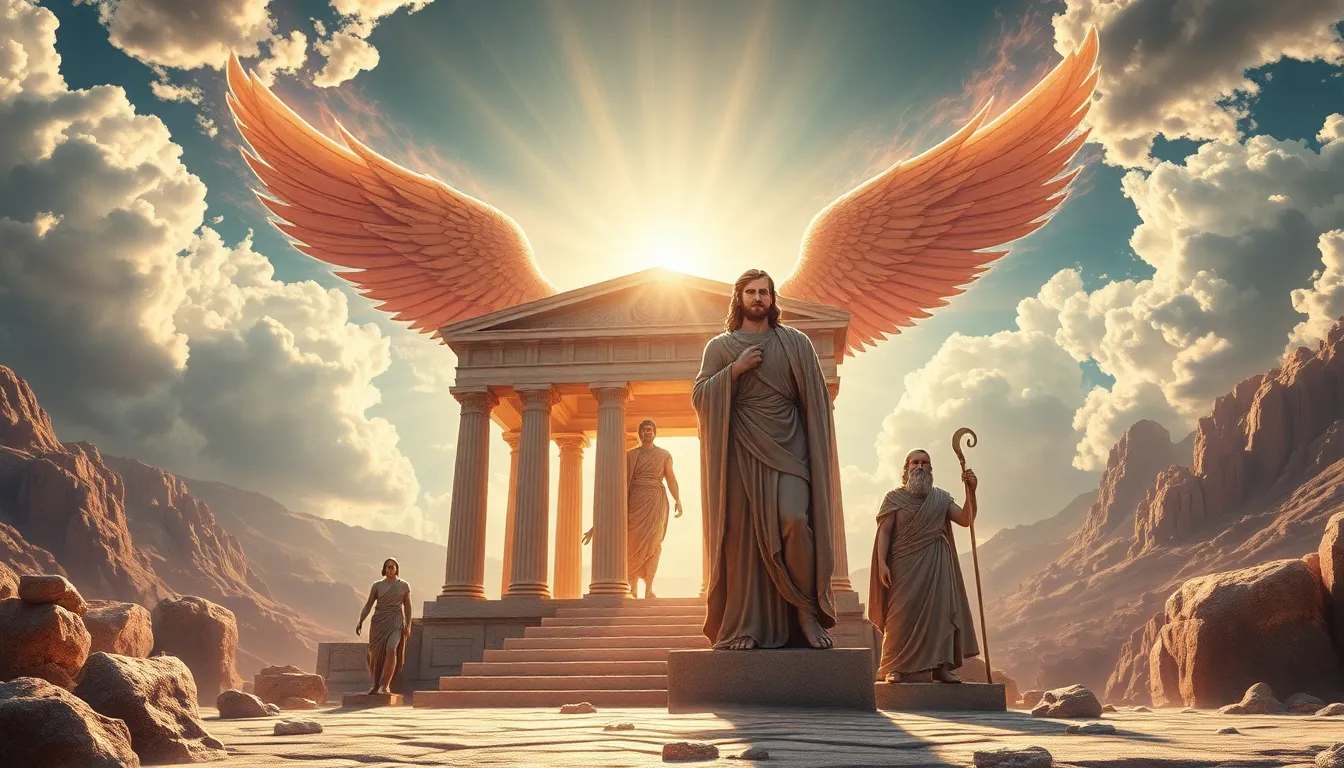The Divine Connection: How Greek Gods Inspired Mortals
I. Introduction
Greek mythology is a rich tapestry of stories that have captivated the imagination of people for centuries. This ancient belief system is populated by a vast array of gods, goddesses, heroes, and mythical creatures, each with their own unique traits and domains. The gods of Greece were not merely distant figures; they were integral to the lives of mortals, influencing everything from daily activities to major life events.
The significance of these deities in ancient Greek culture cannot be overstated. They were invoked in prayers, honored in rituals, and their stories served as cautionary tales or sources of inspiration. This article aims to explore the profound influence of Greek gods on mortals, examining how their divine connection shaped human experiences, moral lessons, art, and literature throughout history.
II. The Pantheon of Greek Gods
The Greek pantheon consists of numerous deities, each representing different aspects of life and nature. Key deities include:
- Zeus: King of the gods, ruler of Mount Olympus, and god of the sky.
- Hera: Queen of the gods, goddess of marriage and family.
- Athena: Goddess of wisdom, warfare, and crafts.
- Apollo: God of the sun, music, poetry, and prophecy.
- Dionysus: God of wine, pleasure, and festivity.
The relationship between gods and mortals was complex. Mortals sought the favor of the gods through sacrifices, prayers, and rituals, hoping to receive divine assistance in their endeavors. The concept of divine intervention was prevalent; gods often intervened in human affairs, bestowing blessings or enacting punishments based on their whims.
III. Myths as Moral Lessons
Many popular myths feature interactions between gods and mortals, often highlighting moral and ethical lessons. For instance:
- The tale of Icarus, who flew too close to the sun, teaches the importance of humility and the dangers of hubris.
- The story of Prometheus, who defied Zeus to bring fire to humanity, serves as a reminder of the consequences of rebellion and the value of knowledge.
These narratives encapsulate profound truths about human nature and societal values. Tragedy and comedy played significant roles in conveying these messages, with tragic tales often warning against certain behaviors, while comedic stories could provide relief and reflection.
IV. Art and Literature Influenced by the Gods
The depiction of Greek gods in art is a testament to their importance in ancient culture. Sculptures, pottery, and frescoes frequently illustrated divine figures, showcasing their grandeur and attributes. Notable examples include:
- The Statue of Zeus at Olympia, one of the Seven Wonders of the Ancient World.
- Vase paintings that depict scenes from myths, such as the abduction of Persephone by Hades.
The influence of Greek mythology extends into literature and theater, inspiring playwrights like Aeschylus, Sophocles, and Euripides. Their works often explored themes of fate, free will, and the divine, leaving a lasting impact on Western literature.
V. The Cult of the Gods
Religious practices in ancient Greece were deeply intertwined with the veneration of the gods. Rituals and ceremonies were conducted to honor the deities, including:
- Animal sacrifices to seek favor or appease the gods.
- Public festivals like the Olympic Games, held in honor of Zeus.
These festivals served not only religious purposes but also fostered community spirit and cultural identity. Oracles, such as the famous Oracle of Delphi, played a crucial role in guiding mortals. People would seek prophetic insights to make decisions about war, politics, and personal matters, further illustrating the divine connection between gods and humans.
VI. Greek Gods as Archetypes
Greek gods often represent archetypal traits of human nature. For instance:
- Athena embodies wisdom and strategy.
- Ares represents the chaotic nature of war.
- Aphrodite symbolizes love and beauty.
These archetypes have influenced character development in literature and continue to resonate in modern storytelling. Contemporary narratives often draw upon these timeless themes, reflecting the enduring relevance of Greek mythology in understanding human experiences.
VII. The Legacy of Greek Mythology
Greek mythology remains relevant in modern culture. Its stories have been adapted in various forms, including:
- Films such as Troy and Clash of the Titans.
- Literature like Circe by Madeline Miller and The Song of Achilles.
- Art that continues to draw inspiration from mythological themes.
Moreover, mythology plays a vital role in shaping identities and values, providing a framework for understanding morality, human relationships, and the world around us.
VIII. Conclusion
The divine connection between Greek gods and mortals reveals a profound interplay that has shaped human culture and thought throughout history. The myths serve as a mirror reflecting human experiences, challenging us to explore our nature and values. As we delve into the world of Greek mythology, we uncover timeless truths that continue to resonate in our lives today. The legacy of these ancient stories endures, inviting each generation to explore the intricate relationship between the divine and the mortal.




